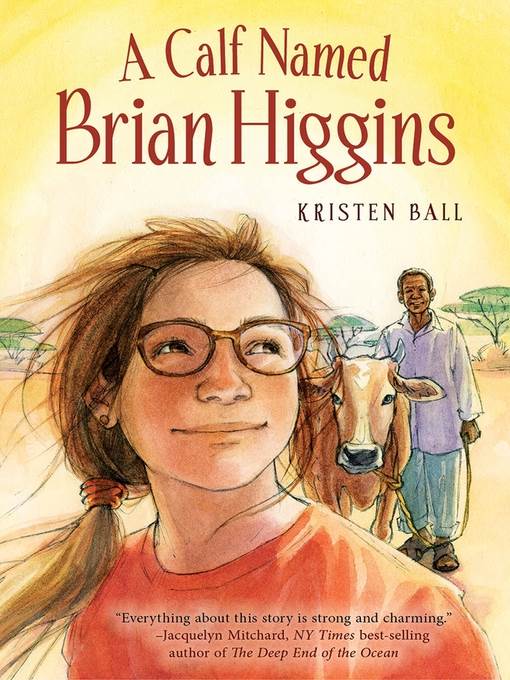
A Calf Named Brian Higgins
An Adventure in Rural Kenya
ماجراجویی در کنیا
فرمت کتاب
ebook
تاریخ انتشار
2018
Lexile Score
630
Reading Level
2-3
نویسنده
Kristen Ballناشر
Red Chair Pressشابک
9781947159037
کتاب های مرتبط
- اطلاعات
- نقد و بررسی
- دیدگاه کاربران
نقد و بررسی

July 30, 2018
After 13-year-old Hannah and her mother travel from the U.S. to Sauri, a small Kenyan town where Hannah’s uncle Brian works for a non-governmental organization, they experience challenges as they move through the country, including the lack of paved roads to the rural village. Once they arrive, Hannah, who is quick to bicker with her mother and take her own luxuries for granted, begins to see her own privilege. (Factoids about inequality and deprivation, such as that 2.4 billion people in the world lack access to toilets, are integrated into the story.) When Brian is killed in a bus crash, Hannah and her Kenyan friend Wilkister decide to try to get the road to Sauri paved to prevent further tragedies. Not all of the characters are well developed, but Higgins, who has lived and worked in Sauri, writes from an informed visitor’s perspective in this coming-of-age journey that engages readers in Hannah’s adventures while educating them about the stark conditions in much of the developing world. Ages 9–10.

In this middle-grade novel based on real events,a 13-year-old American girl visits a remote Kenyan village and discovers much about Africa and herself.Hannah Higgins, 13, is used to luxuries that feel small: hot showers, ice cubes, good cellphone service. And like many teenagers, she's impatient, rude, and critical of her parents. Spending a summer in a far-off Kenyan village isn't her idea of fun, but she loves spending time with her Uncle Brian, who's working to help end poverty in the country. So she accompanies her mother, a nurse, to Sauri, a small rural village. Hannah struggles to accept unappetizing food, the ever present smell of manure, dust, heat, and a lack of electricity. But after she settles in, visits a village school, and makes a few friends, her sense of compassion awakens. She sees the hospital's lack of necessary medicine, and she's struck by the upcoming Harvest Festival's reason for celebration: "No one in Sauri has died because of hunger in a whole year." Some tragic news makes Hannah want to return home early, but her mother convinces her to stay and make the experience worthwhile. Seeing how the villagers take care of one another inspires her to look for ways to improve the school, clinic, and roads and to change her life's direction. Debut author Ball traveled to Sauri, Kenya, as an adult, and she includes photographs of actual people and places she mentions in this feel-good story. She also provides additional information for readers who might want to get involved in similar tasks. Readers will likely find Hannah a relatable character--she's no saint, but she's good-hearted, willing to learn, and poised to grow. The story doesn't mention a few of the region's serious problems, though, especially those affecting girls; child marriage and female genital mutilation, for example, are still practiced in Kenya,although they're illegal and on the decline. Ball also mentions a girl's 6-mile morning walkto fetch water but not the various dangers, such as assault and waterborne disease, which such errands expose many African women to.A vivid, if incomplete, account through American eyes of sub-Saharan poverty and sustainable ways to help.
COPYRIGHT(2018) Kirkus Reviews, ALL RIGHTS RESERVED. (Online Review)

























دیدگاه کاربران